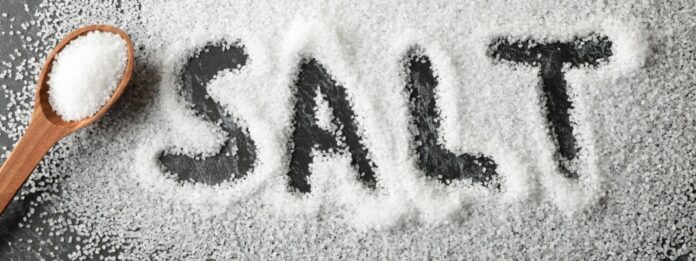Sri Lanka is currently facing a significant salt shortage, triggering public frustration and sharp criticism of the government’s handling of the situation.
Despite previous pledges to make the country self-sufficient in salt production and even begin exports, consumers and traders are now grappling with skyrocketing prices.
Crystal salt is reportedly being sold at Rs. 450 to Rs. 500 per kilogram in some areas, prompting numerous complaints to the Consumer Affairs Authority (CAA) about inflated prices.
The crisis has stirred public anger, with many—especially housewives—lamenting that even a basic meal of rice, coconut, and salt is now unaffordable. This growing discontent has put pressure on the government to act swiftly.
In response, the Trade Ministry has announced the emergency importation of salt stocks, with shipments expected to arrive shortly.
CAA Chairman Hemantha Samarakoon acknowledged the importance of salt as a daily household item, though it has not been officially declared an essential commodity. He urged the public not to panic or create artificial demand, assuring that adequate supplies would soon be available if buying patterns remained normal.
Deputy Minister of Trade, Commerce and Food Security, R.M. Jayawardena, blamed the shortage partly on illegal hoarding by certain suppliers seeking to profit. He confirmed ongoing raids and market monitoring in collaboration with the CAA to curb such malpractice.
Jayawardena also clarified that only 15,000 metric tonnes (MT) of salt were approved for importation to address the supply gap, and about 10,000 MT have already arrived.
The shortage, he explained, stems from a production shortfall in 2024, when only 150,000 MT were produced against an annual national requirement of 180,000 MT. Continuous rainfall hampered salt harvesting, resulting in a 35,000 MT deficit.
The government maintains that imports are a temporary measure, aimed at stabilizing the market while boosting local production. Jayawardena assured that local salterns are now operating without weather-related disruptions, and the supply situation is expected to normalize soon.
However, Salt Producers’ Association Chairperson Ganaka Amarasinghe highlighted that government-approved stocks of non-iodised salt have not yet reached markets due to import delays.
He said the promised 30,000 MT of imported salt has yet to arrive in full, exacerbating the shortage and pushing prices higher.
The government is under mounting pressure to fulfill its self-sufficiency goals and bring swift relief to consumers burdened by essential commodity price hikes.
